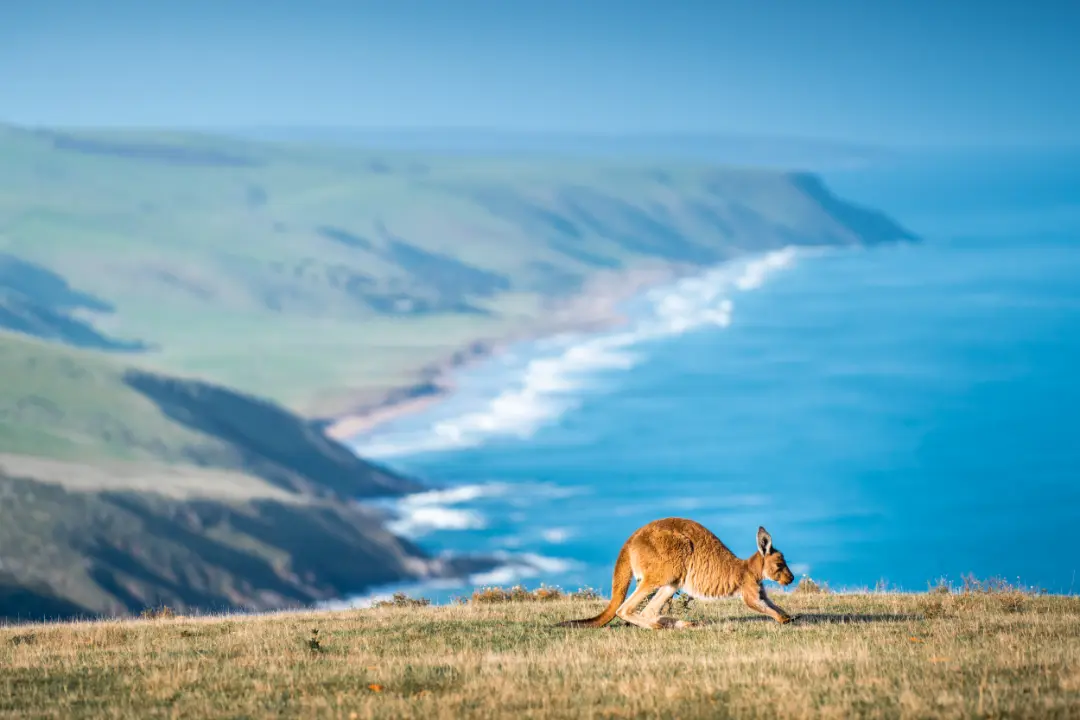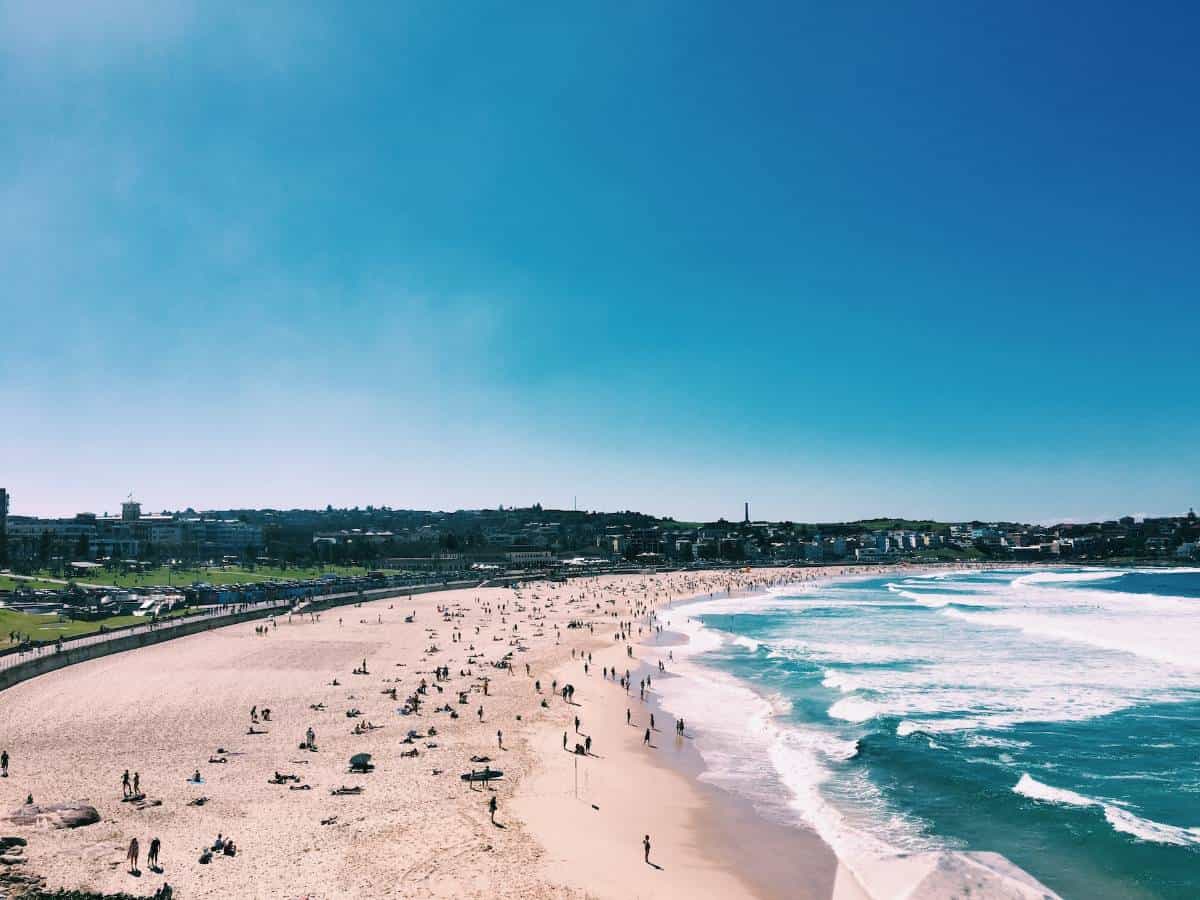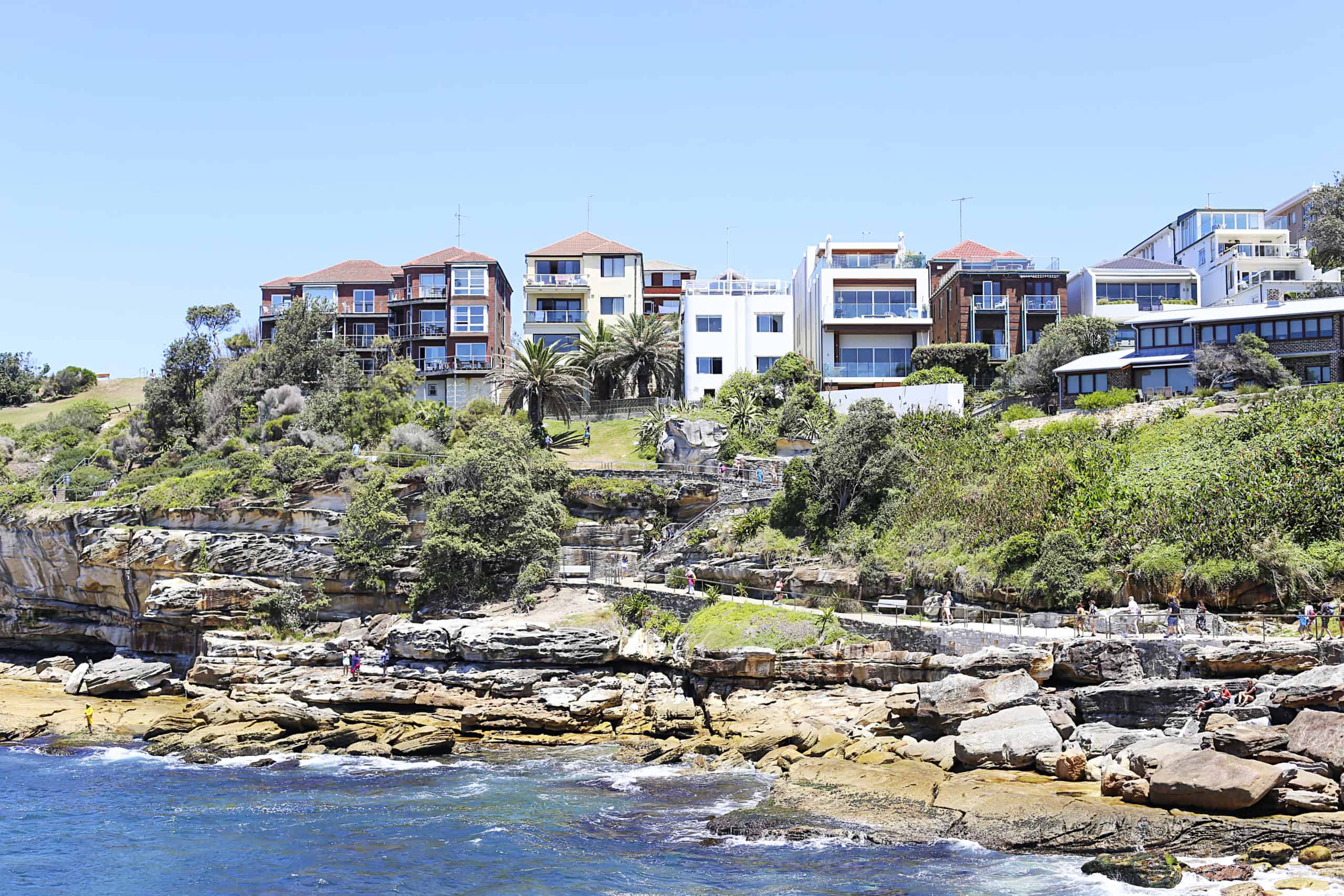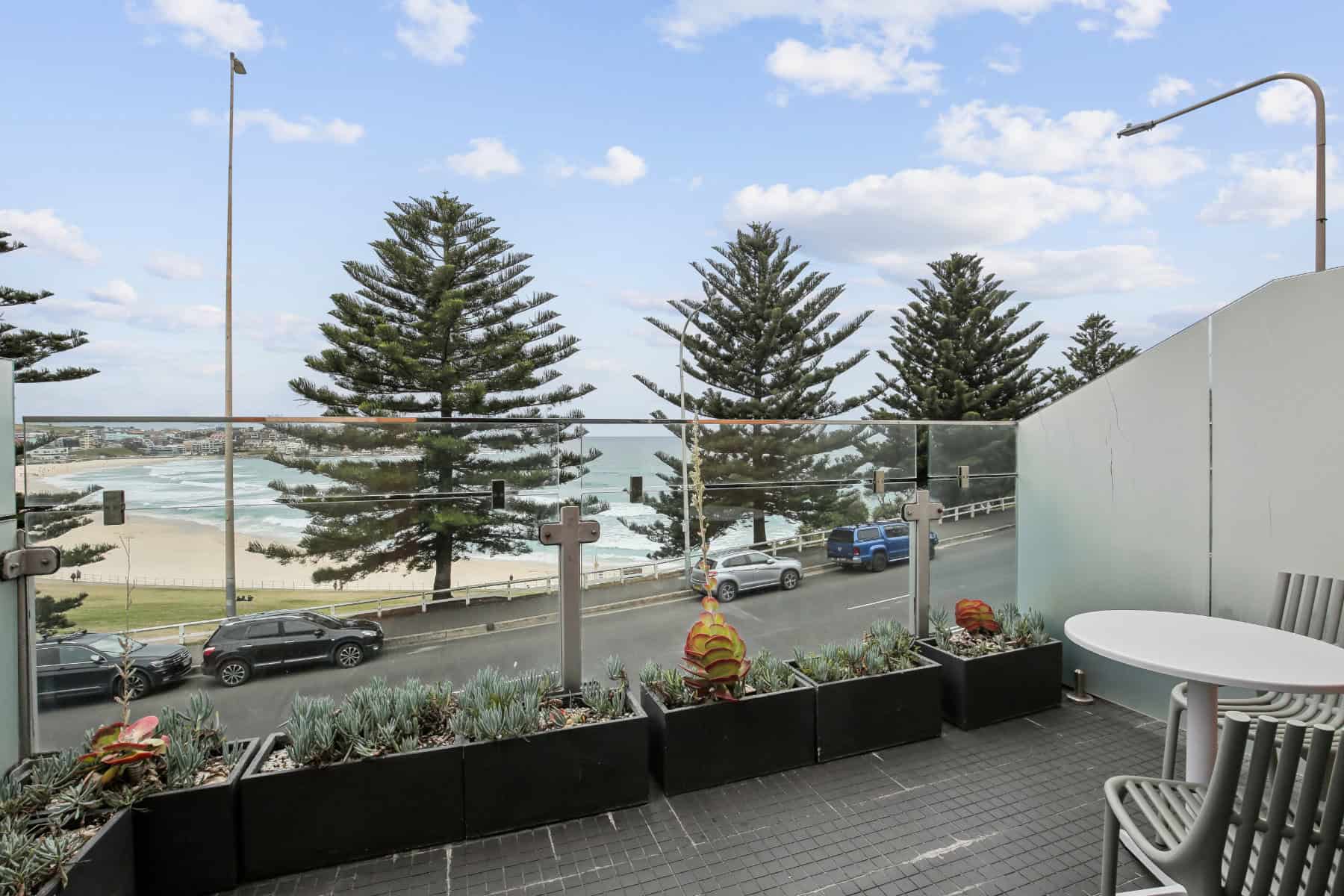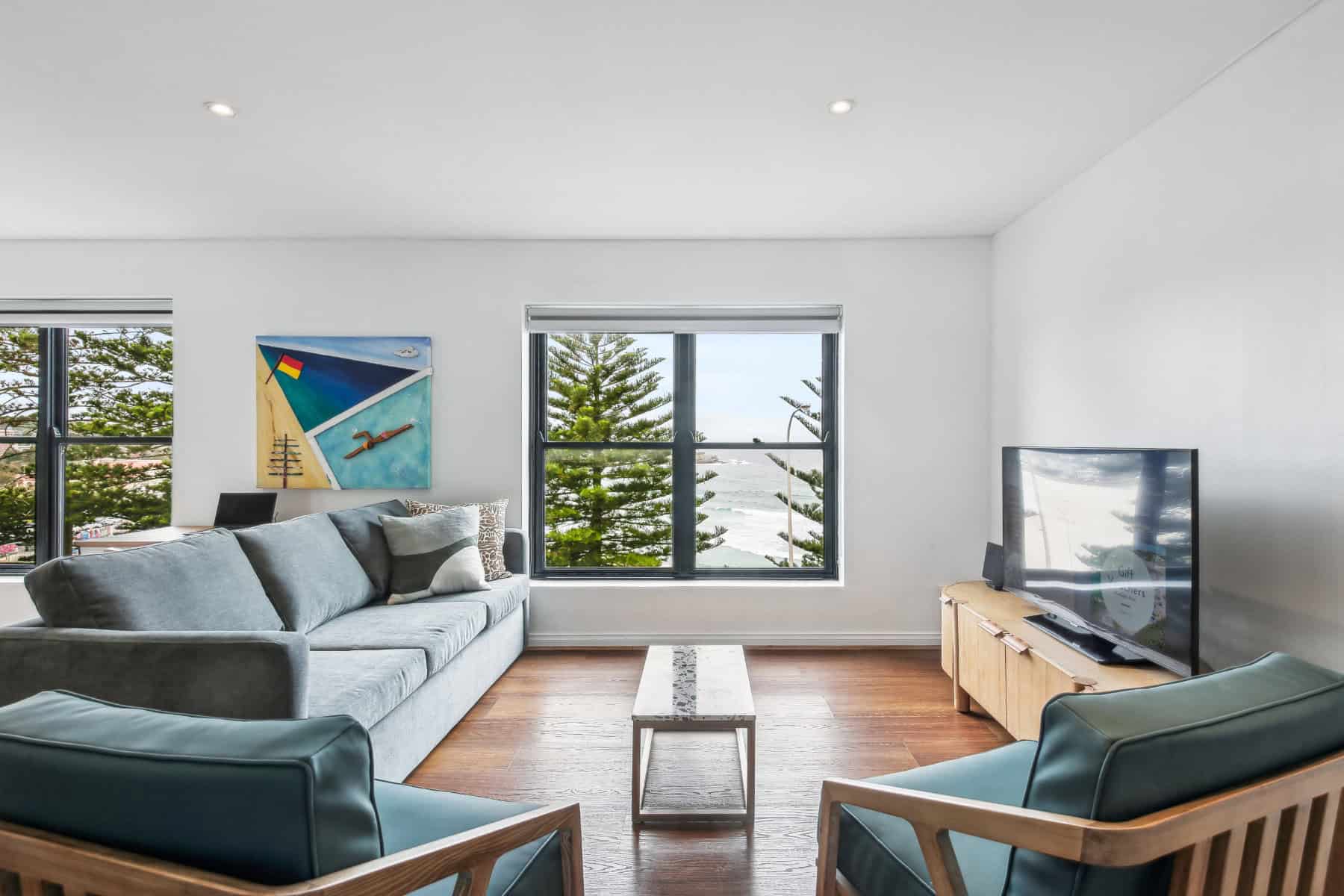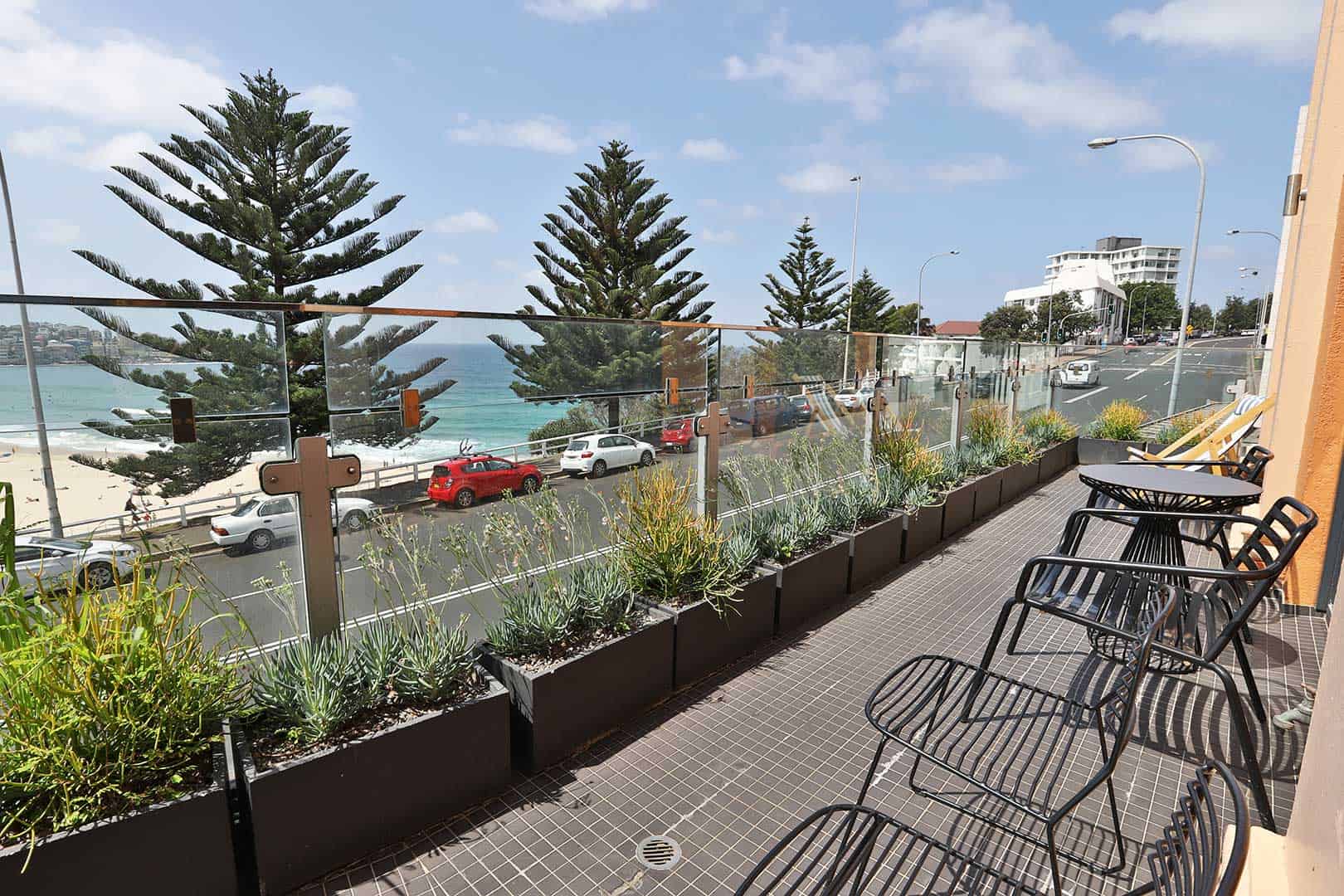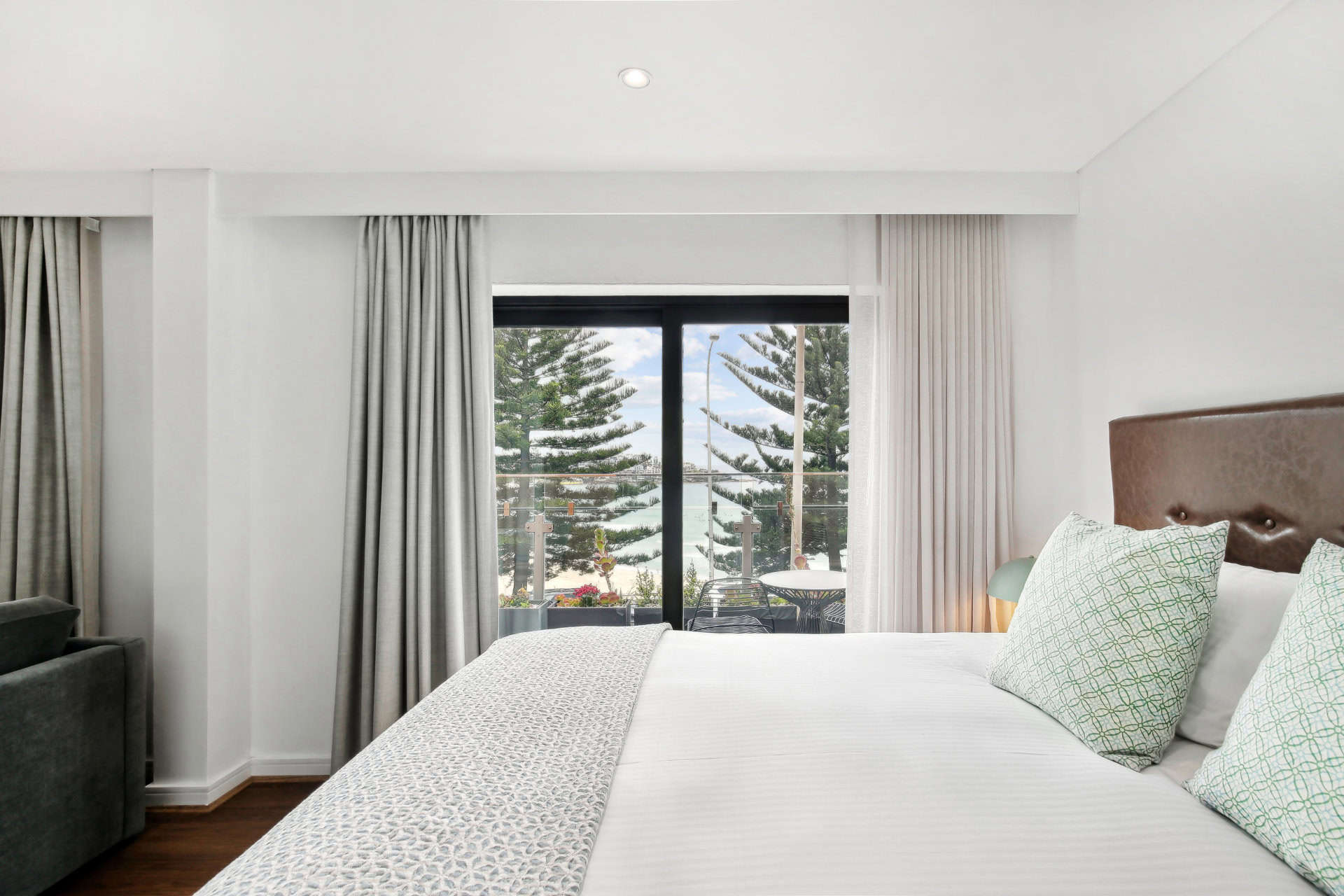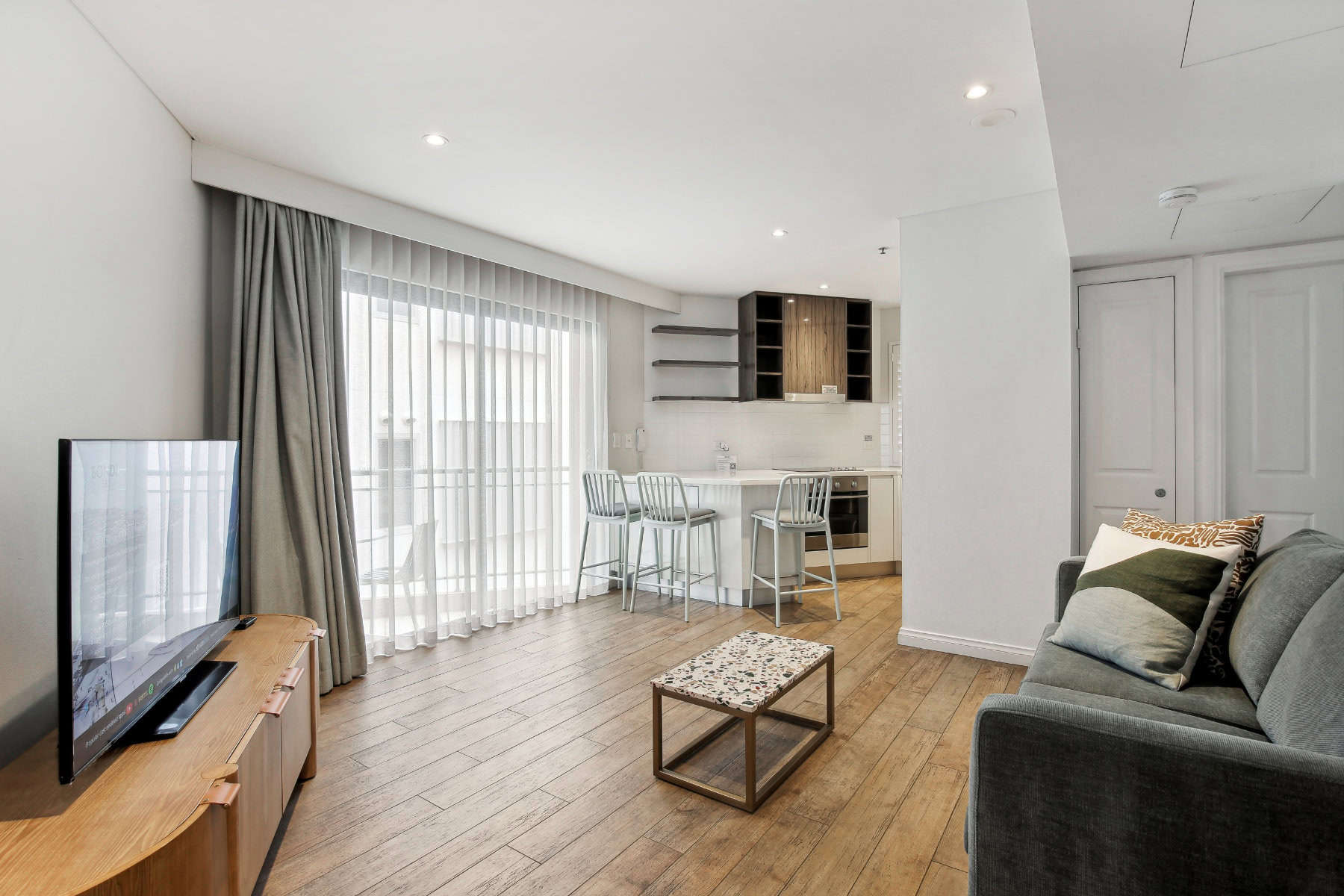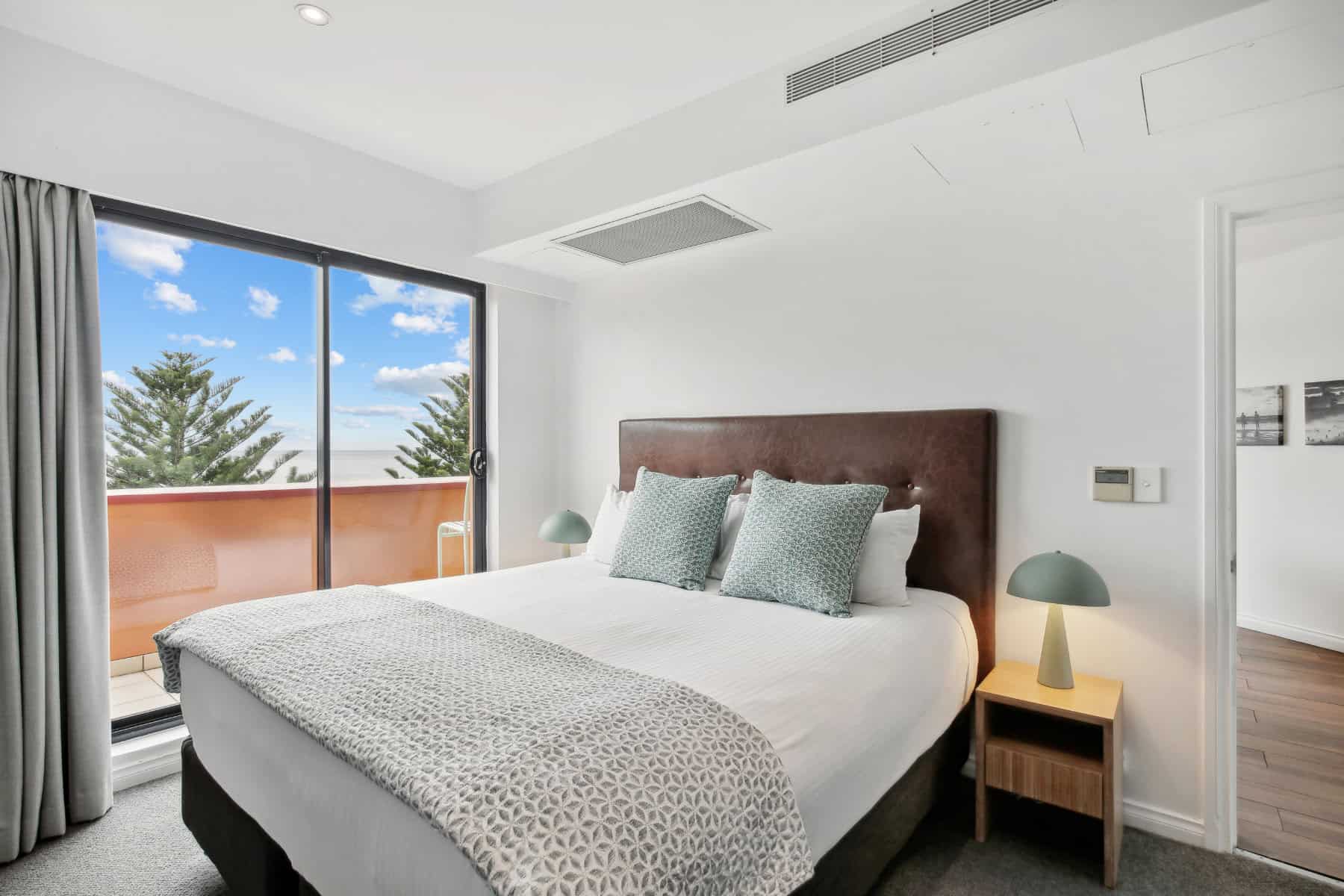Planning a trip to Australia? This guide offers everything you need to know—from the best times to visit, top destinations, and practical tips to ensure a smooth journey as you plan a trip to Australia. Get ready to embark on your Australian adventure with confidence.
Key Takeaways
- March and November are the best times to visit Australia for optimal weather. Depending on your interests, summer and winter offer unique experiences.
- Key destinations include Sydney for iconic landmarks, Melbourne for culture and food, and natural wonders like Uluru and the Great Barrier Reef.
- Budgeting is crucial. To manage transportation costs effectively, plan for daily expenses of around 100 AUD and consider domestic flights over long drives.
Best Time to Visit Australia
Timing is a key factor when planning your trip to Australia. Generally, the best months to visit Australia are March and November, offering optimal weather and experiences without the peak season crowds. These shoulder months provide a great balance, making city breaks and outback adventures equally enjoyable.
If you’re a fan of festivals and major sporting events, the summer months from December to February are ideal. However, these months can be quite hot, especially in the country’s northern parts.
On the other hand, the winter months from June to August are perfect for snorkelling on the Great Barrier Reef or hitting the slopes in the Snowy Mountains. June, in particular, is a great time to explore Australia’s northern regions and the mountains of Victoria.
The ideal time to visit Australia hinges on your activities and destinations. Research specific areas, as the weather varies greatly across this vast continent.
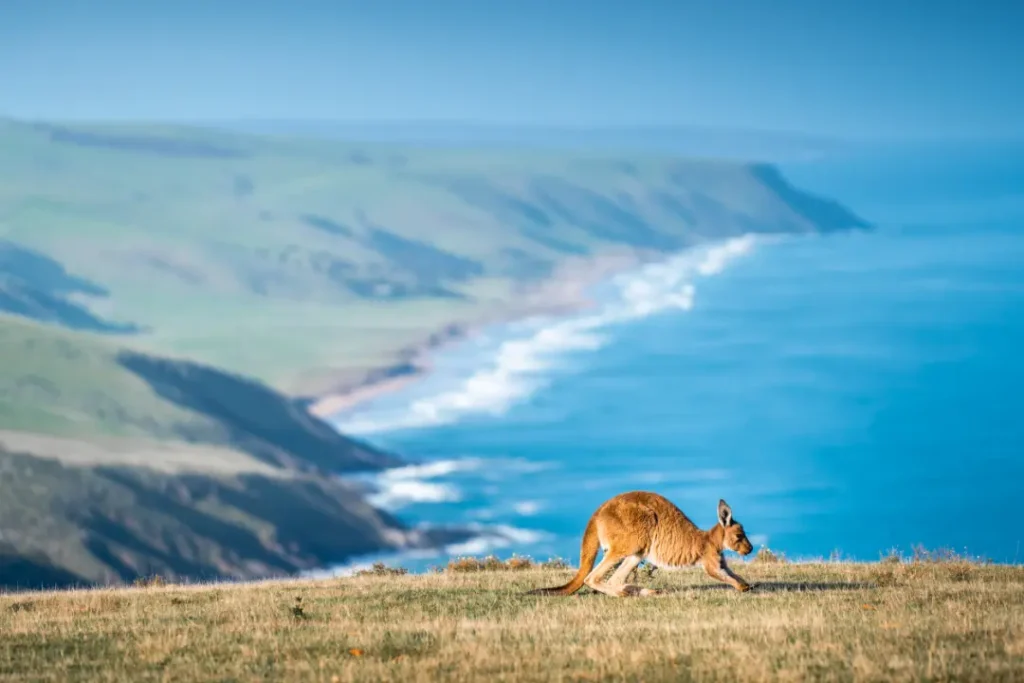
Essential Destinations in Australia
Australia is a land of diverse landscapes and vibrant cities. Start your journey in Sydney, home to iconic landmarks such as the Sydney Harbour Bridge and the Opera House. Conversely, Melbourne is celebrated for its street art, diverse culinary scene, and cultural events.
For those seeking a bit of coastal magic, head to Byron Bay, known for its stunning views and relaxed atmosphere. The Gold Coast’s beautiful beaches and theme parks make it a popular family destination. Brisbane offers a range of outdoor activities and is known for its picturesque rivers and parks.
Nature lovers shouldn’t miss Uluru’s majestic sandstone formations and Fraser Island’s unique wildlife. Kangaroo Island is a haven for wildlife enthusiasts, offering encounters with koalas, sea lions, and more. Each destination offers something unique, making your Australia itinerary a dream trip come true.
Accommodation Options
Choosing the right accommodation is vital for a memorable trip. Australia offers a variety of accommodations, from luxurious hotels to budget-friendly hostels. Unique stays like Sails in the Desert and Niramaya Villas & Spa add something special, while Airbnb offers stylish apartments with ocean views.
Bondi38 Serviced Apartments in Sydney are an excellent choice for those wanting a home away from home. These serviced apartments boast modern amenities, keyless entry, and complimentary Wi-Fi, making them a convenient and comfortable option. Plus, they offer stunning views of Bondi Beach, ensuring your stay is as memorable as the destination itself.
Whether seeking luxury or budget options, you’ll find accommodations that suit your needs and elevate your Australian adventure.
Getting Around Australia
Navigating Australia’s vast landscape requires some planning. Flying is the quickest travel method, with domestic airlines like Qantas, Jetstar, and Tiger Airways providing numerous options. Budget airline Bonza is another good option, accessible through their app for flight prices.
Renting a car is ideal for those who prefer the open road. It allows exploration of natural attractions and an epic Road Trip. However, be mindful of long driving times and occasionally monotonous scenery. The Great Ocean Road is a must-drive, offering stunning coastal views and many attractions.
While public transport is sparse in some regions, Greyhound buses and efficient rail systems in cities like Sydney and Melbourne facilitate easier travel. Buses are also a cheaper and eco-friendly travel option across the country. Carefully planning your routes maximises your Australia trip.

Budgeting for Your Trip
Budgeting is a fundamental aspect of organising your trip to Australia. Generally, travelling in Australia can be 10-30% more expensive compared to Western Europe and North America. Hotel and restaurant costs can accumulate quickly, so plan accordingly.
Transportation is usually the largest expense due to the long distances between destinations. Domestic flights often prove cheaper than driving, making them a viable option for covering vast distances. Opting for hostels or budget accommodations can help keep costs down.
Dining out can cost around 20-30 AUD per meal, leading to a daily food expense of about 100 AUD. Overall, expect daily expenses of around 100 AUD while travelling. Careful budget planning allows you to enjoy your dream trip without breaking the bank.
Must-See Attractions
Visiting Australia’s must-see attractions is essential for a complete trip. The Great Ocean Road is famous for its breathtaking coastal views and the iconic Twelve Apostles rock formations. Climbing the Sydney Harbour Bridge offers spectacular city views, including the Opera House.
Whale watching from May to November is a prime coastal activity. Australia’s wildflower season from August to October also showcases stunning flora found nowhere else in the world. At Lucky Bay, you can even spot kangaroos sunbathing on the pristine white beaches.
These attractions offer a glimpse into the diverse beauty and experiences visiting Australia presents.
Planning Your Itinerary
Your ideal Australia itinerary depends on your interests and available time. A 7-day trip could start in Sydney, including major stops like Canberra, and then head to Darwin. This itinerary offers a mix of urban and natural experiences.
A 10-day trip along the east coast allows you to explore the Great Barrier Reef and Daintree Rainforest. A 12-day itinerary could combine urban experiences with visits to Tasmania’s natural wonders for a more extensive adventure.
Consider spending 4 days on Kangaroo Island for family trips for wildlife encounters and outdoor activities. Whether you have a week or a month, careful planning ensures you make the most of your time in Australia.
Tips for First-Time Visitors
First-time visitors should apply for an Australia ETA well in advance to avoid last-minute hassles. Having appropriate health insurance to cover unexpected medical costs is also wise.
These simple tips can make your first trip smoother and more enjoyable, allowing you to focus on the incredible experiences awaiting you.
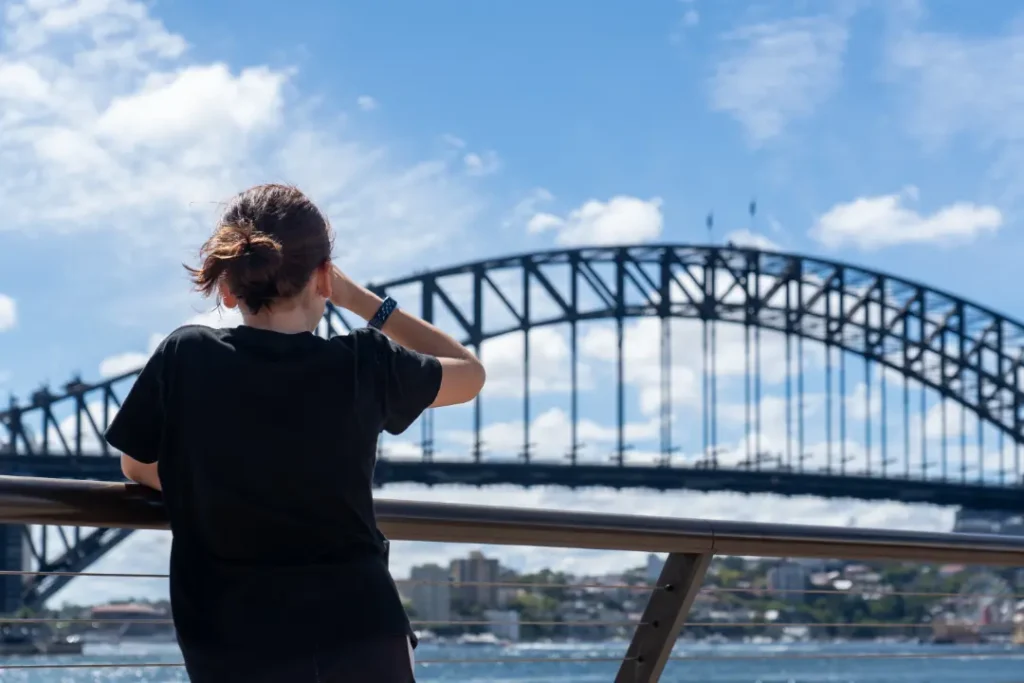
Day Trips and Excursions
Day trips offer an excellent way to explore Australia’s diverse landscapes and attractions. Popular day trips from Sydney include the Blue Mountains and Port Stephens, which are known for their stunning scenery and outdoor activities.
The Yarra Valley, located in Melbourne, offers wine tasting and scenic countryside views. The Great Ocean Road, also starting from Melbourne, is renowned for breathtaking coastal vistas and the iconic Twelve Apostles rock formations.
Cairns, a gateway to the Great Barrier Reef and Daintree Rainforest, is a must-visit for nature lovers. These excursions add extra adventure to your Australian vacation.
Unique Experiences
Unique experiences in Australia make your trip unforgettable. Diving at the Great Barrier Reef lets you explore one of the world’s most famous marine environments, and the Whitsunday Islands offer opportunities for sailing and enjoying stunning marine life.
Wildlife enthusiasts can explore Kangaroo Island and Kakadu National Park to see Australia’s unique animals and ecosystems. Adrenaline seekers can chase crocodiles in the Northern Territory for an unforgettable thrill.
Such experiences deeply connect to Australia’s natural beauty and wildlife, making your trip special.
Summary
Australia is a land of endless adventure, offering something for every traveller. From the best times to visit and must-see destinations to budgeting tips and unique experiences, planning your trip carefully ensures a memorable journey.
We hope this guide inspires you to plan your dream trip to Australia. Whether you’re exploring vibrant cities, stunning coastlines, or unique wildlife, Australia promises an unforgettable adventure.
Frequently Asked Questions
What is the best time to visit Australia?
Plan your trip to Australia in March or November for the best weather and to avoid the crowds. It’s a great way to enjoy all that the country has to offer!
What are the must-see destinations in Australia?
You can’t go wrong with Sydney, Melbourne, Byron Bay, the Great Barrier Reef, and Uluru—they’re absolute must-sees in Australia! Each spot offers its own unique experience and breathtaking sights.
How can I budget for my trip to Australia?
To effectively budget for your trip to Australia, expect higher expenses for transportation and accommodation. Opt for budget-friendly choices, like staying in hostels and eating out less often, to keep your costs manageable.
What are some unique experiences in Australia?
For some truly unique experiences in Australia, dive at the Great Barrier Reef, explore the stunning Whitsunday Islands, and have memorable wildlife encounters on Kangaroo Island. These adventures are sure to leave a lasting impression!
What transportation options are available in Australia?
You have plenty of transportation options in Australia: you can fly, rent a car, or hop on public transport like buses and trains. Each choice offers a great way to explore this beautiful country!


